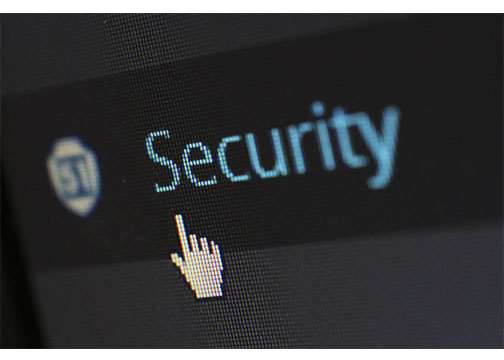What You Need to Know About VPNs

Photo illustration from Pixabay.
April 17, 2018
As society becomes more and more technology oriented, privacy becomes more and more of a concern. With every news story about a malware outbreak, our security and privacy seems to be thrown into question.
For those security cautious individuals out there, a VPN might be perfect. VPN stands for Virtual Private Network, and it can provide comfort and assurance for those who wants their privacy assured, as well as restrictions removed on where you go online.
“Essentially what a VPN does is it creates a little tunnel to a different WIFI access,” junior Abhishek Jain, a technology enthusiast, said. “It essentially spoofs your IP address so it’s harder to track you, it gives you privacy, and it gives you that unrestricted access.”
Where VPNs and incognito mode differ, however, is the sheer effectiveness. Incognito mode serves to hide what you do and where you go online, but only to the people with access to the device. That’s all well and good, but what about other people? For instance, your ISP. Your ISP, or internet service provider, is where you get your internet access from. They can see every site you visit and everything you do. They are a Big Brother, of sorts. If you’re desperately trying to keep what you’re doing online a secret, whatever it may be, if someone like your mom or dad is suspicious enough, they can call up the ISP and request the internet history. VPNs act against this.
“It works to hide and mask your internet traffic from your ISP and those who want to see it. It’s like incognito mode on steroids,” sophomore Amaan Bari, also a tech enthusiast, said.
Basically, the VPNs make it so your IP address isn’t the one that you’re accessing the WIFI from. In addition, they encrypt your internet traffic, making your ISP unable to see the details as it is all jumbled up.
“They’ll know that you went to some remote server, but that’s all they’ll know,” Bari said. “They won’t know any specifics at all.”
This is immensely helpful for the privacy concerned individual. Even more, it allows the user to feel in control of their privacy and their internet privileges.
“It gives you a sense of privacy because they can’t track things back to you very easily,” Jain said. “It allows you to access things so it gives you that idea of internet freedom, allowing you to do what you wish with your internet.”
To describe VPNs as a simple way of masking your internet history is somewhat of an understatement. VPNs are kind of like a Swiss army knife. As mentioned earlier, they can also allow you to visit sites that your internet provider doesn’t allow,like what happens at schools. Our school blocks the use of certain apps, such as Snapchat, so many use VPNs on their phones to use such apps while still using the WIFI.
“I prefer not to use my data so it allows me to use the school WIFI and access apps like Snapchat,” Jain said.
However, VPNs have some downsides. For one thing, they can slow your internet speeds. This is because there is so much going on between you and the their servers. This can sometimes be avoided by paying for a VPN, as the free option typically has higher server loads, but overall you won’t be getting as fast speeds as without a VPN due to all of the processes going on within it. Now, there are different types for different kind of things users may need.
“If you want to have a faster Netflix stream I would essentially look for something that’s a bit more streaming based, or if you’re looking for a bit more security I would look for something more security based,” Jain said.
VPNs, like a lot of things, are not perfect. If someone already has malware on your device, you’re out of luck. However, this weakness has a strength to it. While they’re weak to previous malware, they are strong to new malware.
“If someone already has malware on your phone, a VPN won’t protect you from that but it protects you from new malware. It will prevent further malware,” Jain said.

